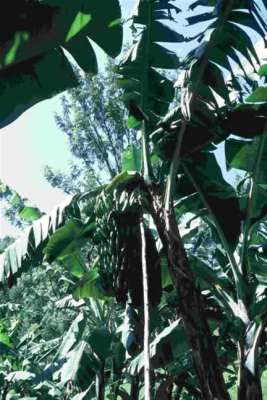SARID = Sustainable Agriculture Research for International Development.
Three quarters of the poorest people in developing countries depend on agriculture. A major initiative to tackle some of the most damaging pests, diseases and environmental conditions which can devastate their crops was launched today by SARID, with £7 million being shared between projects.
Arsenic in rice
Photo by Flickr user Praziquantel. Creative Commons licence.
Arsenic contamination is a major problem in some countries, the result of contaminated groundwater, pollution from mining, and the use of municipal solid waste as fertilizer. the research teams will look at types of rice that take up less of the contamination. This work will be carried out in India, Bangladesh, China and Aberdeen in Scotland
Purging plantain pests
Photo from SARID.
Plantain, or cooking bananas, make up 30% of the daily calories of many of Africa's poorest people, but up to half the crop is lost a a result of worms feeding on the roots of the plants. Because the plants cannot be bred - they are sterile - normal breeding programmes can't be used to produce resistant strains. Researchers in Uganda and the UK (Leeds) will be looking at this problem.
Other research projects
In total there will be 12 different projects over the next four years, covering crops such as sweet potatoes, coconuts, millet and maize, kale and cabbage. More detail is available in a pdf file.
It is very likely that at least some of the research will be looking at genetic modification. This was once thought to be a wonderful way to alleviate poverty and hunger but more recently there has been huge controversy over its safety and impact.
Two very conflicting reports have recently been published, one from the International Service for the Acquisition of Agri-biotech Applications (ISAAA), and the other from Friends of the Earth International. While biotechnology may not be the "magic bullet" it once was expected to be, it may well have a role to play. It is important though that it shouldn't be developed without consideration of the environment in which it will be used.


No comments:
Post a Comment
Forethoughts, afterthoughts, any thoughts. Tell me.
Please try the alternative comment form if you're having trouble commenting.